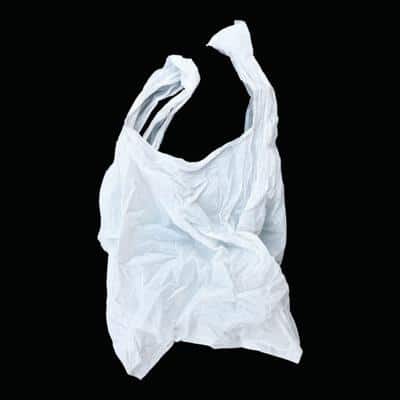
By Elizabeth Gribkoff/VTDigger
While plastic bag bans in some parts of the country have been rolled back during the pandemic, Vermont’s single use bag prohibition will still go into effect next week.
Starting July 1, stores and food service establishments will no longer provide plastic carryout bags at check-out. Stores and food service establishments may provide paper carryout bags but must charge a minimum fee of $0.10 each. Stores and restaurants will keep the money collected to help compensate for the higher cost of paper bags.
(Plastic or paper bags used for dry cleaning, flowers, packaging loose produce and other food items within stores will still be allowed without charge.)
Additionally, food service establishments will no longer automatically provide plastic straws to customers. However, they may provide straws made from an alternative material and any customer may request a straw. (Hospitals, nursing homes, and other care facilities are exempt and may continue providing plastic straws.)
Also included in the law is a ban on expanded polystyrene. Stores and food service establishments will no longer provide or sell food or beverage containers made of expanded polystyrene including: plates and cups, trays, egg cartons and take-out containers.
Expanded polystyrene is still allowed for packaged uncooked meat, products packaged out-of-state and products packaged for sale out-of-state.
Despite the fact that lawmakers passed this bill last year, don’t expect the change to be everywhere all at once. According to the provisions, stores and eateries may continue using plastic bags, straws, stirrers, and expanded polystyrene products until July 1, 2021, if the items were purchased before May 15, 2019.
The Covid-19 pandemic has complicated the rollout, too.
Early on in the pandemic, the Vermont Retail and Grocers Association called on the governor and lawmakers to postpone the plastic bag ban until January. President Erin Sigrist stressed that the association was not looking to do away with the ban, but to reduce potential coronavirus exposure for workers from reusable bags, and to give stores some leeway to use up extra plastic bags they haven’t used during the pandemic.
Grocers are still talking with environmental officials about how the plastic bag ban will work, especially since many have seen delays in paper bag shipments, said Sigrist.
“There’s a supply issue that we’re trying to address, in addition to banning plastic bags, so it’s a complex situation,” she said, adding “It’s not as simple as just saying OK we’re going to close that door on July 1 and everything’s going to work perfectly.”
Not surprisingly, the plastics industry has taken the opportunity to promote disposable bags as a safer alternative to reusables, and to call for bag bans to be overturned. This call has been taken up by some municipalities and states, with New Hampshire Gov. Chris Sununu even going so far as to temporarily ban reusable bags.
While a few studies, including an oft-pointed-to industry-funded one, have shown that certain bacteria and viruses can live on reusable bags, public health experts say the main mode of transmission for the coronavirus is person-to-person contact.
“The studies don’t really provide evidence that there’s any risk to public health from coronavirus due to the use of reusable bags,” said Josh Kelly, materials management section chief at the state Department of Environmental Conservation. His division has made that assessment in consultation with Vermont health officials.
DEC staff have stressed that businesses should not tell customers they’re prohibited from using reusable bags. Kelly says that will lead to more bag use and causes “an unnecessary environmental threat.”
“Our position is that it does make sense that anybody who is bringing a reusable bag to a store, that they take the opportunity to give the clerk a break, and fill those bags themselves,” he said. And people should regularly wash their reusable bags, Kelly added.
Sen. Chris Bray, D-Addison, who chairs the Senate Natural Resources and Energy Committee and sponsored the plastics ban bill, said the intent of the bag ban was to “transition from single use to reusables,” not from plastic to paper.
He stressed while he wants grocery store workers to be as safe as possible, he does not think banning reusable bags is the best way to do that. Bray pointed out that not all stores require people to wear masks, as recommended by the Vermont Department of Health.
“So if [respiratory droplets are] the major threat to the health and well-being of your employees don’t say we’re going to prohibit reusable bags, but let people walk around without masks,” he said. “That makes no scientific sense in terms of protecting the health and welfare of employees, which we support 100%.”



